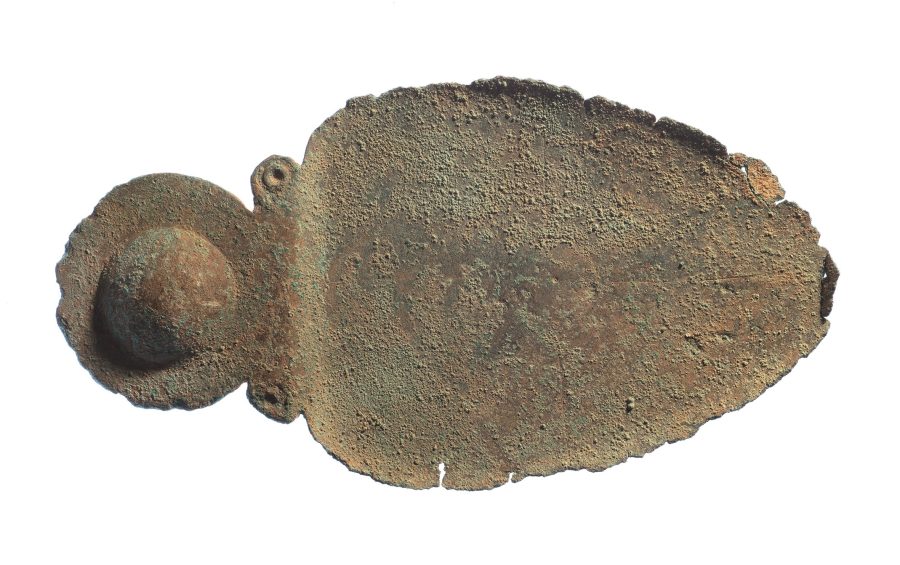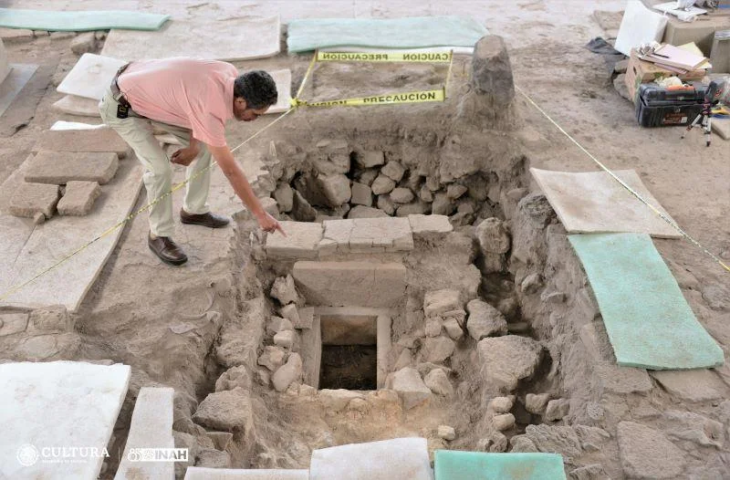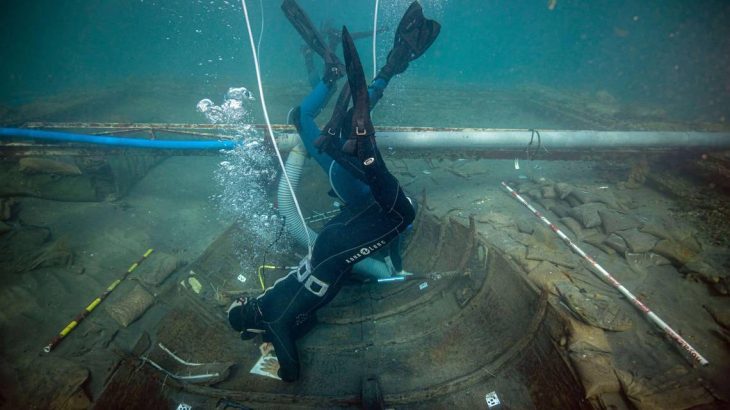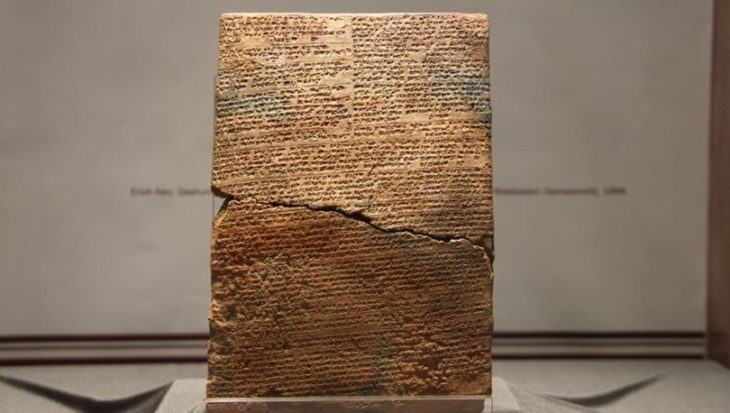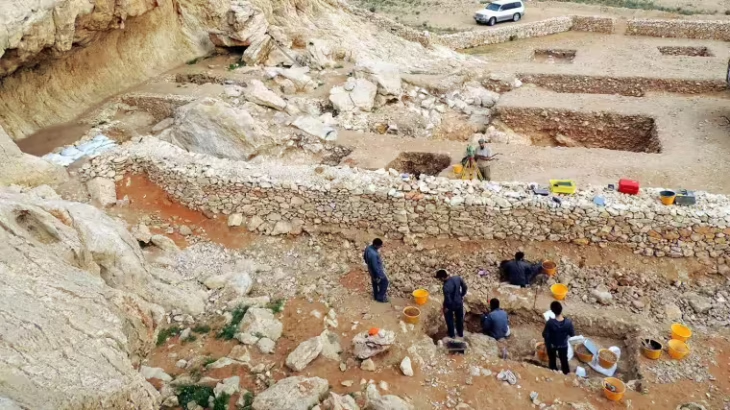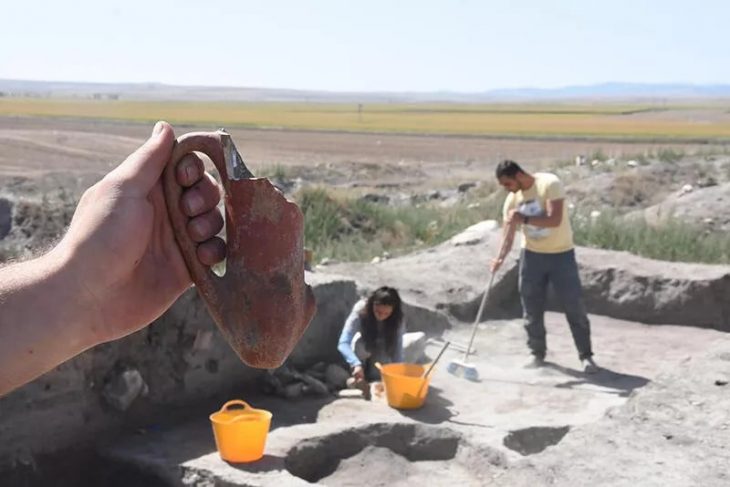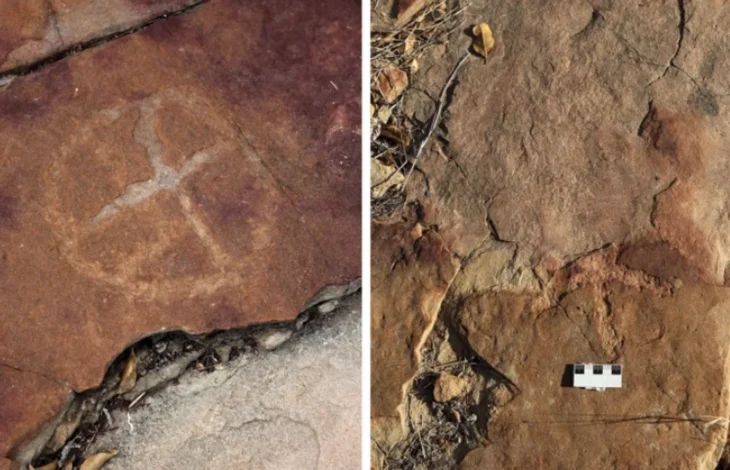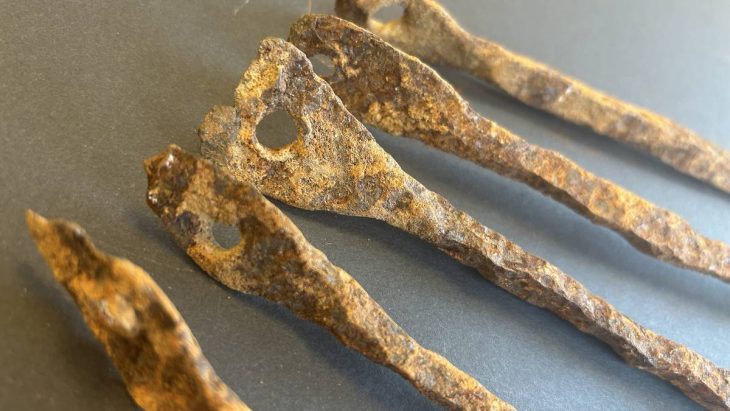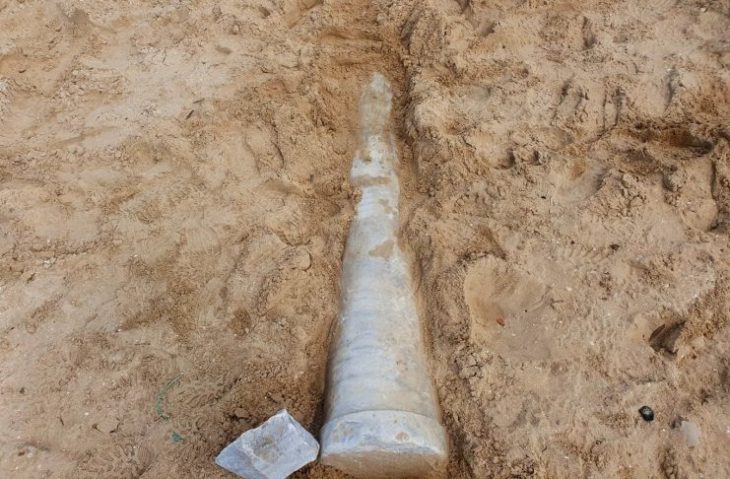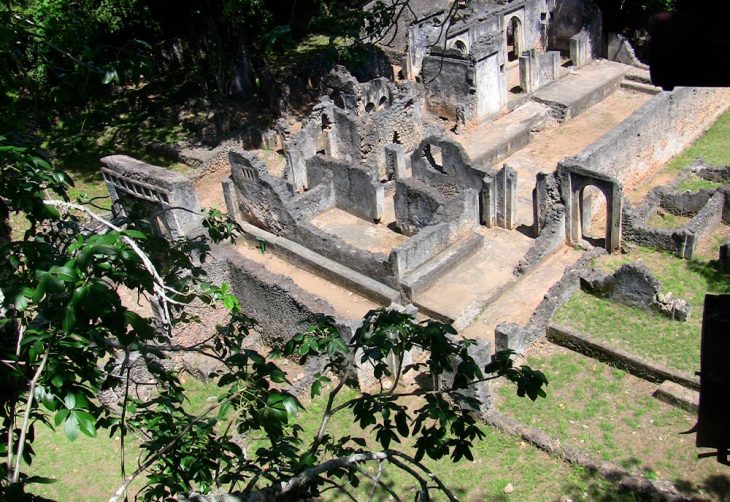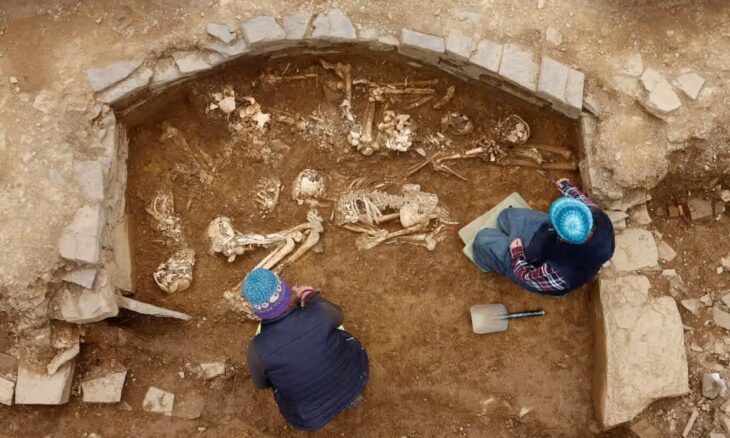A unique bronze spoon, dating back 2,000 years and believed to have played a role in divination rituals, has been discovered on the Isle of Man, marking it as the first of its kind to surface on the island.
A metal detectorist, Rob Middleton found this object on David Anderson’s farm in Patrick. While similar items have been found in Britain, Ireland, and France, only 28 such spoons exist worldwide.
Allison Fox, the archaeology curator for Manx National Heritage, stated that the bronze spoon, dating to around 400-100 BCE, is one of the most intriguing objects ever discovered on the Isle of Man. She noted that Iron Age finds are relatively scarce, and bronze spoons from this period are particularly rare, making this discovery even more remarkable. The spoon was donated to the Manx National Collections at the Manx Museum by metal detectorist Rob Middleton and the landowner where the spoon was found.
The spoon features a broad, strawberry-shaped bowl and a circular handle adorned with spiral patterns. At the bottom of the bowl, two finely engraved lines intersect to form a cross, dividing the bowl into four quadrants. Although its exact purpose is still uncertain, researchers believe it may have been used in ritual ceremonies to foresee future events. Fox elaborated that it is thought a liquid would have been poured into the spoon marked with the cross, and the quadrant in which the liquid settled could provide insights about the future.
This discovery aligns with previous findings of similar spoons, which are often unearthed in pairs—one displaying an incised cross and the other featuring a small hole. Experts speculate that a liquid, possibly water, beer, or even blood, may have been dripped from the spoon with the hole into the one marked with a cross, suggesting an ancient method of fortune-telling or divination.
📣 Our WhatsApp channel is now LIVE! Stay up-to-date with the latest news and updates, just click here to follow us on WhatsApp and never miss a thing!!
According to the statement, during the Iron Age on the Isle of Man, the inhabitants generally lived in small communities within wooden or stone huts. While the statement does not associate the spoon with a particular ancient culture, it is likely that it was used by Celtic tribes, as they were among the island’s earliest residents.
The Iron Age on the Isle of Man spanned from approximately 500 BCE to 500 CE. During this time, the inhabitants lived in small communities throughout the island, typically in timber or stone structures known as roundhouses. While the Romans began their occupation of Britain during the middle of this period, there is currently no evidence to suggest that they settled on the Isle of Man. Nevertheless, some artifacts have been discovered that indicate possible connections between the island’s inhabitants and the Romans.
Cover Image credit: Manx National Heritage

